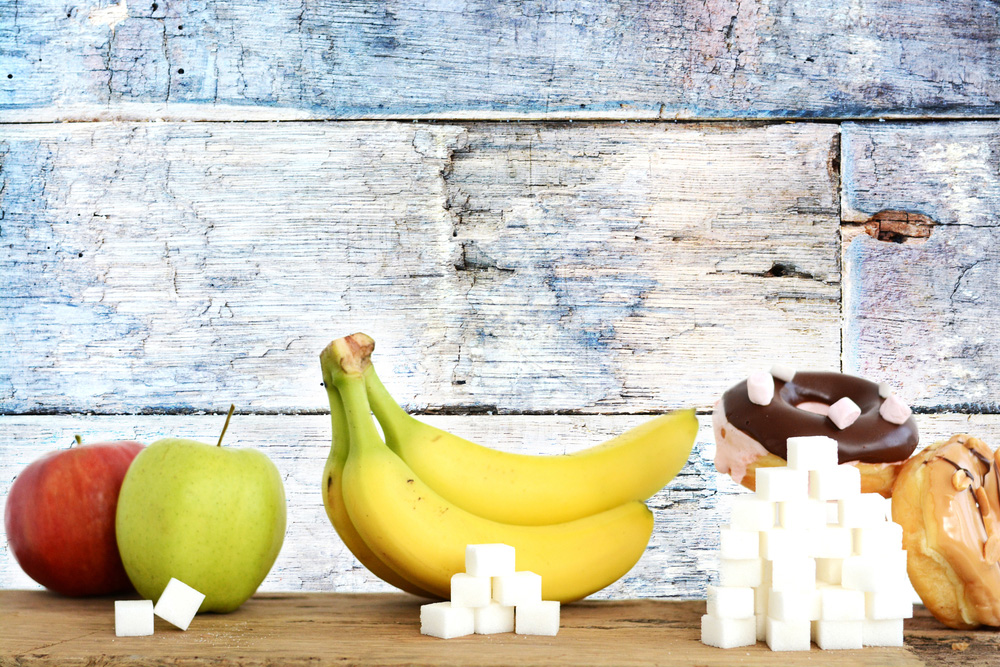
Sweet indulgences taste divine, plus they make us feel good due to the beta-endorphin rush in the brain, so it’s understandable why resisting a delicious piece of chocolate or pie takes a lot of will power for some. The holidays can be a particularly dicey time for those with a sweet tooth. Whether it’s the festive cookies your co-workers made or the treats left out wherever you go, it’s so tempting to eat what could equal your bodyweight in sweets.
While we all deserve to treat ourselves, it is very important to watch our sugar intake as eating too much has been linked to various health problems, including heart diseases, obesity, type 2 diabetes and dental cavities. Unfortunately, balancing our sugar intake is often easier said than done as the sweet substance is present on a daily basis in our diets. Additionally, sugar is not nearly as taboo as other addictive substances, so people don’t think twice about consuming it every day.

Maria Baghdoyan
Maria Baghdoyan, Corporate Nutritionist at Nestlé Middle East, gives us a helping hand and shares beneficial tips on how we can even out our intake and vary our choices to maintain a healthy lifestyle.
Start at the grocery store. Fill your shopping cart with healthier alternatives such as vegetables and fruits that are naturally sweet and opt for them instead of occasional desserts.
Read the labels. Make sure you read the product labels carefully to check how much sugar is provided in each serving. When reading the ingredients list of any product, take note of where sugar is mentioned; if it is the first ingredient, then the sugar content is the highest.
Make smart switches. Did you know that you can use naturally sweet veggies and fruits in baking or cooking? Try throwing in some bananas in your brownie recipe or some heated berries in your oatmeal; they will add sweetness to your meals without adding a lot of sugar.
Don’t drink your calories. Opt for regular or sparkling water, milk or unsweetened fresh juices in small amounts instead of sugary drinks that will add no nutritional value, but lots of calories, to your diet!
Indulge wisely. We all crave that piece of chocolate or cake from time to time and it’s OK, just be mindful of your portions and remember that moderation is key to a healthy and balanced diet.
Train to settle for less. Remember that sugar is an acquired taste, You can gradually train yourself to take less and still end your day on a sweet note.
Baghdoyan also advises to know the difference between the two types of sugars. Sugar, a type of carbohydrate, usually comes in two forms, naturally occurring and added.

Naturally occurring sugars can be found in fruits, fruit juices, milk and some vegetables. Added sugars include table sugars (white or brown), corn syrup, maple syrup, other sweetners and honey. While the the latter is a source of naturally occurring sugars, it is often added as an ingredient replacing regular sugar, so it can also be considered an added sugar. And although added sugars contain calories, they hardly have any nutritional value.
Here are some common sources of added sugars:
- Sugary drinks (e.g. soft drinks, sweetened beverages)
- Sweets like candy and chocolate
- Flavoured yogurt
- Baked products like sweet pastries, cakes and doughnuts
- Canned fruits
- Fruit juices
- Condiments like ketchup, barbecue sauce and other dressings
Follow the guidelines for the recommended amount of sugar
The World Health Organization recommends limiting added sugars to 10 percent or less of the daily recommended caloric intake of average adults and kids.
What does that mean?
For adults about 12 teaspoons (48g) on a 2,000 kcal diet.
For kids aged 8 years+ about 10 teaspoons (40g) on a 1,700 kcal diet
However, instead of pouring our energy in obsessing over grams and teaspoons, it is recommended to focus on reducing sugars by limiting products that contain them.
















